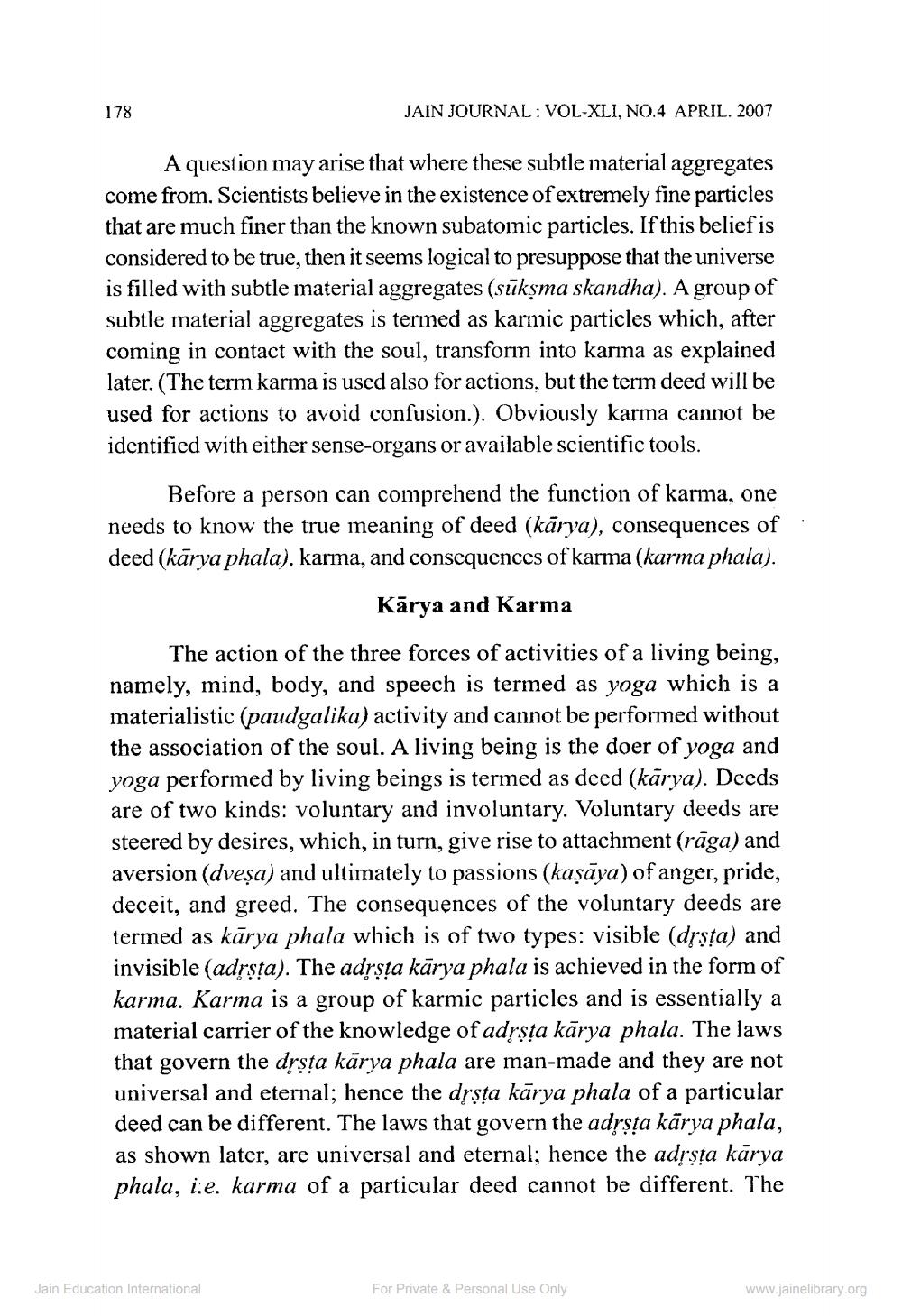Book Title: Jain Journal 2007 04 Author(s): Jain Bhawan Publication Publisher: Jain Bhawan Publication View full book textPage 9
________________ 178 JAIN JOURNAL: VOL-XLI, NO.4 APRIL. 2007 A question may arise that where these subtle material aggregates come from. Scientists believe in the existence of extremely fine particles that are much finer than the known subatomic particles. If this belief is considered to be true, then it seems logical to presuppose that the universe is filled with subtle material aggregates (sūkṣma skandha). A group of subtle material aggregates is termed as karmic particles which, after coming in contact with the soul, transform into karma as explained later. (The term karma is used also for actions, but the term deed will be used for actions to avoid confusion.). Obviously karma cannot be identified with either sense-organs or available scientific tools. Before a person can comprehend the function of karma, one needs to know the true meaning of deed (karya), consequences of deed (karya phala), karma, and consequences of karma (karma phala). Karya and Karma The action of the three forces of activities of a living being, namely, mind, body, and speech is termed as yoga which is a materialistic (paudgalika) activity and cannot be performed without the association of the soul. A living being is the doer of yoga and yoga performed by living beings is termed as deed (karya). Deeds are of two kinds: voluntary and involuntary. Voluntary deeds are steered by desires, which, in turn, give rise to attachment (rāga) and aversion (dveṣa) and ultimately to passions (kaṣāya) of anger, pride, deceit, and greed. The consequences of the voluntary deeds are termed as kārya phala which is of two types: visible (dṛṣṭa) and invisible (adrṣṭa). The adrṣsta karya phala is achieved in the form of karma. Karma is a group of karmic particles and is essentially a material carrier of the knowledge of adṛṣṭa karya phala. The laws that govern the dṛṣṭa karya phala are man-made and they are not universal and eternal; hence the dṛṣṭa kārya phala of a particular deed can be different. The laws that govern the adṛṣṭa kārya phala, as shown later, are universal and eternal; hence the adṛṣṭa kārya phala, i.e. karma of a particular deed cannot be different. The Jain Education International For Private & Personal Use Only www.jainelibrary.orgPage Navigation
1 ... 7 8 9 10 11 12 13 14 15 16 17 18 19 20 21 22 23 24 25 26 27 28 29 30 31 32 33 34 35 36 37 38 39 40 41 42 43 44 45 46 47 48 49 50 51 52 53 54 55 56 57 58
